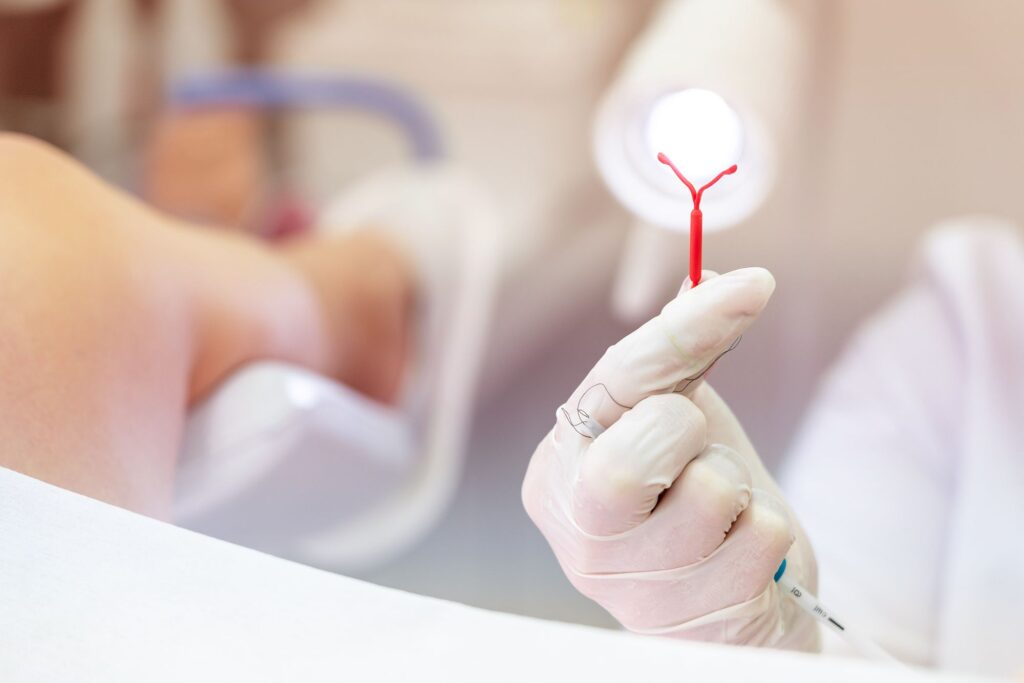Sleep apnea is a serious sleep disorder that can have far-reaching impacts on health and well-being. If you suspect you or a loved one may have sleep apnea, understanding the testing process and finding a test nearby is critical. This guide will navigate through the nuances of sleep apnea, the significance of testing, and local options available for you.
Understanding Sleep Apnea
Sleep apnea is characterized by repeated interruptions in breathing during sleep. These disruptions can occur hundreds of times each night, diminishing the quality of sleep and leading to daytime fatigue and other health complications. The condition not only affects the individual but can also disrupt the sleep of partners, creating a ripple effect that impacts relationships and overall well-being.
Once you decide on the type of test needed, the next step is finding sleep apnea test near me. Numerous resources are available to help you locate credible sleep apnea testing facilities in your area.
What is Sleep Apnea?
Sleep apnea is classified mainly into two types: obstructive sleep apnea and central sleep apnea. Obstructive sleep apnea occurs when the muscles in the throat relax excessively during sleep, blocking the airway. Central sleep apnea, although less common, occurs when the brain fails to send signals to the muscles that control breathing. A third type, complex sleep apnea syndrome, is a combination of both obstructive and central sleep apnea, further complicating diagnosis and treatment. Understanding these distinctions is crucial for effective management and intervention.

Common Symptoms of Sleep Apnea
Identifying the signs of sleep apnea is key in seeking proper treatment. Common symptoms include:
- Loud snoring
- Choking or gasping during sleep
- Mornings with dry mouth or sore throat
- Fatigue during the day
- Difficulty concentrating
If you recognize these symptoms in yourself or someone else, it may indicate a need for a sleep apnea assessment. Additionally, individuals may experience mood swings, irritability, and a decreased libido, which can further affect interpersonal relationships and overall mental health. Monitoring sleep patterns and keeping a sleep diary can also provide valuable insights that aid healthcare professionals in diagnosing the condition more accurately.
Risks Associated with Untreated Sleep Apnea
Failing to treat sleep apnea can lead to various health risks, including cardiovascular issues like high blood pressure, heart attacks, and stroke. Furthermore, it can exacerbate existing health conditions, contribute to obesity, and significantly impair quality of life. Research has shown that untreated sleep apnea may also increase the risk of developing type 2 diabetes and can lead to complications during surgery due to anesthesia-related issues. The psychological impact is equally concerning, as chronic sleep deprivation can heighten the risk of anxiety and depression, creating a cycle that is difficult to break without intervention. Read more about diabetes on https://www.niddk.nih.gov/health-information/diabetes/overview/what-is-diabetes
The Importance of Sleep Apnea Testing
Getting tested for sleep apnea is a vital step toward understanding one’s health. Proper testing can confirm the presence of the disorder and pave the way for effective treatment. Sleep apnea is not just a nuisance; it can lead to serious health issues such as cardiovascular problems, diabetes, and even stroke if left untreated. Recognizing the symptoms early, such as loud snoring, gasping for air during sleep, or excessive daytime fatigue, can be crucial in seeking timely medical advice.
Diagnosis of Sleep Apnea
A diagnosis often begins with a thorough discussion of medical history and symptoms with a healthcare provider. They may recommend a sleep study, which can either be conducted in a lab or at home, to observe your sleeping patterns and breathing behavior. In-lab studies typically provide a comprehensive analysis, including monitoring brain waves, oxygen levels, heart rate, and breathing patterns. Home sleep tests, while more convenient, may focus primarily on breathing and oxygen levels, making them suitable for certain patients. Understanding the nuances of these tests can help patients feel more informed and engaged in their healthcare journey.
Benefits of Early Detection
Detecting sleep apnea early can lead to timely interventions. Treatment options, such as Continuous Positive Airway Pressure (CPAP) therapy or lifestyle changes, can significantly improve quality of life and prevent the severe health consequences associated with untreated sleep apnea. Additionally, early detection can help mitigate the risks of developing comorbid conditions, such as hypertension and depression, which are often exacerbated by poor sleep quality. Engaging in regular follow-ups and monitoring can also ensure that treatment remains effective, allowing individuals to reclaim their nights and improve their overall well-being. Furthermore, support groups and educational resources are available for those diagnosed, providing a community for sharing experiences and coping strategies, which can be invaluable in managing the condition long-term.
Types of Sleep Apnea Tests
There are two primary types of sleep apnea tests, each with its own advantages and considerations. Understanding these options will help you make an informed decision on how to proceed with testing.
In-Lab Sleep Study
An in-lab sleep study, also known as polysomnography, is a comprehensive test usually performed in a sleep center. During this study, various body functions—such as brain activity, breathing, and heart rate—are monitored overnight. This detailed assessment provides valuable insights into sleep disturbances. The environment is designed to mimic a comfortable bedroom setting, allowing patients to relax as much as possible. Technicians are on hand to ensure that all equipment is functioning correctly and to assist with any issues that may arise during the night. The data collected during this study can help identify not only sleep apnea but also other sleep disorders, such as restless leg syndrome or narcolepsy, which may require different treatment approaches.
Home Sleep Apnea Test
A home sleep apnea test (HSAT) offers a more convenient option for patients. It involves using a portable monitor that records data on your sleeping patterns at home. While less comprehensive than an in-lab study, a home test can effectively diagnose obstructive sleep apnea for many patients. The devices typically measure airflow, breathing patterns, and oxygen levels, providing crucial information about your sleep quality. One of the significant benefits of HSAT is that it allows patients to sleep in their own environment, which can lead to more natural sleep patterns and potentially more accurate results. However, it is essential to follow the instructions carefully to ensure that the data collected is reliable, as improper use of the equipment can lead to inconclusive results. Additionally, some patients may find that the simplicity of home testing does not capture the full picture of their sleep health, making it vital to discuss with a healthcare provider whether this option is suitable for their specific situation.
Finding Local Sleep Apnea Testing Options
Searching for Sleep Clinics Near You
Google searches are a great starting point for finding local sleep clinics. Using phrases like “sleep apnea testing clinic near me” will yield various results. Many clinics provide informative websites outlining their services, which can help you make an informed choice. Additionally, reading online reviews from previous patients can give you insight into the quality of care and the experiences others have had at these facilities. Look for patterns in the feedback, such as the professionalism of the staff and the comfort of the testing environment, as these factors can significantly impact your overall experience. To find more about feedback click here.
Utilizing Online Directories for Sleep Centers
Websites such as the American Academy of Sleep Medicine offer directories of accredited sleep centers. These resources ensure that you are choosing facilities that meet rigorous professional standards, enhancing the likelihood of receiving quality care. Furthermore, many of these directories allow you to filter results based on specific criteria, such as location, types of services offered, and insurance acceptance. This can save you time and help you find a facility that aligns with your needs and preferences, making the process of seeking help less daunting.
Consulting with Your Primary Care Physician
Your primary care physician is an essential resource in your health journey. They can provide recommendations for reputable sleep clinics and may even facilitate your referral, ensuring you receive timely care. In addition to referrals, your physician can help assess your symptoms and determine the most appropriate type of sleep study for your situation. They may also discuss the potential risks and benefits of different testing methods, allowing you to make a more informed decision. Furthermore, maintaining open communication with your doctor about your sleep issues can lead to a more comprehensive approach to your overall health, as sleep apnea often intersects with other medical conditions.

Preparing for Your Sleep Apnea Test
Preparation is key to ensure that your sleep apnea test goes smoothly and provides accurate results. There are several considerations to keep in mind as the testing date approaches.
What to Expect During a Sleep Study
If you are undergoing an in-lab sleep study, expect to spend a night at the clinic. The setting will be designed to mimic your home environment to help you relax. Technicians will attach sensors (electrodes) to monitor your body’s activity while you sleep. These sensors will track vital signs such as your heart rate, breathing patterns, and oxygen levels, providing comprehensive data for your healthcare provider to analyze.
Tips for the Night Before Your Test
To enhance the accuracy of your sleep study, consider the following tips:
- Avoid caffeine and alcohol the day before your test.
- Stick to your regular sleep schedule as closely as possible.
- Wear comfortable clothing to facilitate easy monitoring.
- Do not take naps during the day prior to your appointment.
Additionally, it may be beneficial to create a calming bedtime routine the night before your test. Engaging in relaxing activities such as reading a book, practicing gentle yoga, or meditating can help ease any anxiety you may feel about the upcoming study. Ensuring that your mind is at rest can contribute to a more natural sleep pattern during the test, allowing for more accurate results.
Arriving prepared can make a significant difference in the effectiveness of your test and, ultimately, your treatment for sleep apnea. Remember to bring any necessary items that can help you feel more at home, such as your favorite pillow or a comforting blanket. Familiar items can provide a sense of security and comfort, which may help you fall asleep more easily in an unfamiliar environment.
In conclusion, understanding sleep apnea and its implications can empower you to seek the help you need. By following the steps outlined in this guide, you can effectively navigate the testing process and take significant strides toward improved health and well-being.
Read more at: Exploring Bulk-Billed Sleep Apnea Tests

